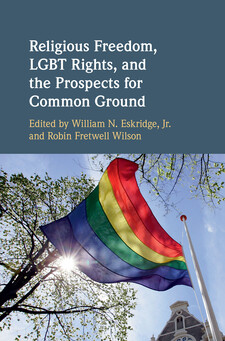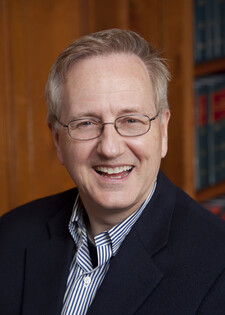Professor Eskridge ’78 Publishes Book on Religious Freedom and LGBT Rights
In Religious Freedom, LGBT Rights, and Prospects for Common Ground, Professor William N. Eskridge Jr. ’78 and coeditor Robin F. Wilson tackle the thorny problem of how to balance religious freedom rights and lesbian, gay, bisexual, and transgender (LGBT) rights. The compilation includes 35 essays that bring into dialogue leading voices in the faith and LGBT advocacy communities, together with equality and religious liberty scholars, to examine whether laws can be created that protect LGBT individuals from discrimination without encroaching on religious liberty.
“Thi

This question took center stage in the U.S. Commission on Civil Rights’ high-profile September 2016 report, Peaceful Coexistence: Reconciling Non-Discrimination Principles with Civil Liberties. Eskridge and Wilson worry that the report reached a dim conclusion that placed religious protections and nondiscrimination laws in competition, without leaving space for their reconciliation. The Commission chairman’s claims provoked sharp dissent from moderate commentators and an equally strong response from some social conservatives and faith leaders.

The volume asks, for example, whether religious organizations that partner with the state to provide social services, yet make placements consistent with their faith tenets, should receive public funds. And should tax-exempt universities that oppose same-sex marriage be at risk of losing their tax-exempt status, or continue to benefit from federal funding.
Eskridge and Wilson highlight that the vast majority of the 35 contributors share a hope for reconciliation between faith communities and LGBT rights, although each would offer different strategies to accomplish this.
According to Eskridge and Wilson, Religious Freedom, LGBT Rights, and Prospects for Common Ground initiates “a long overdue conversation about whether we must remain divided as a nation over matters at the intersection of faith and sexuality.


